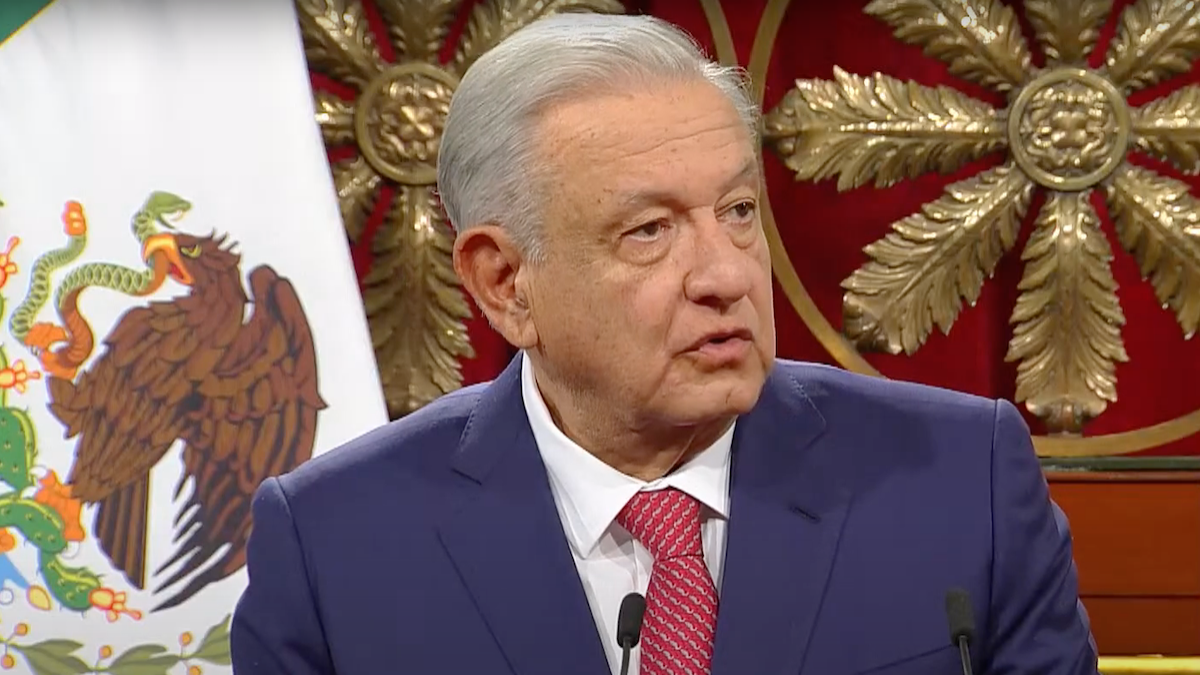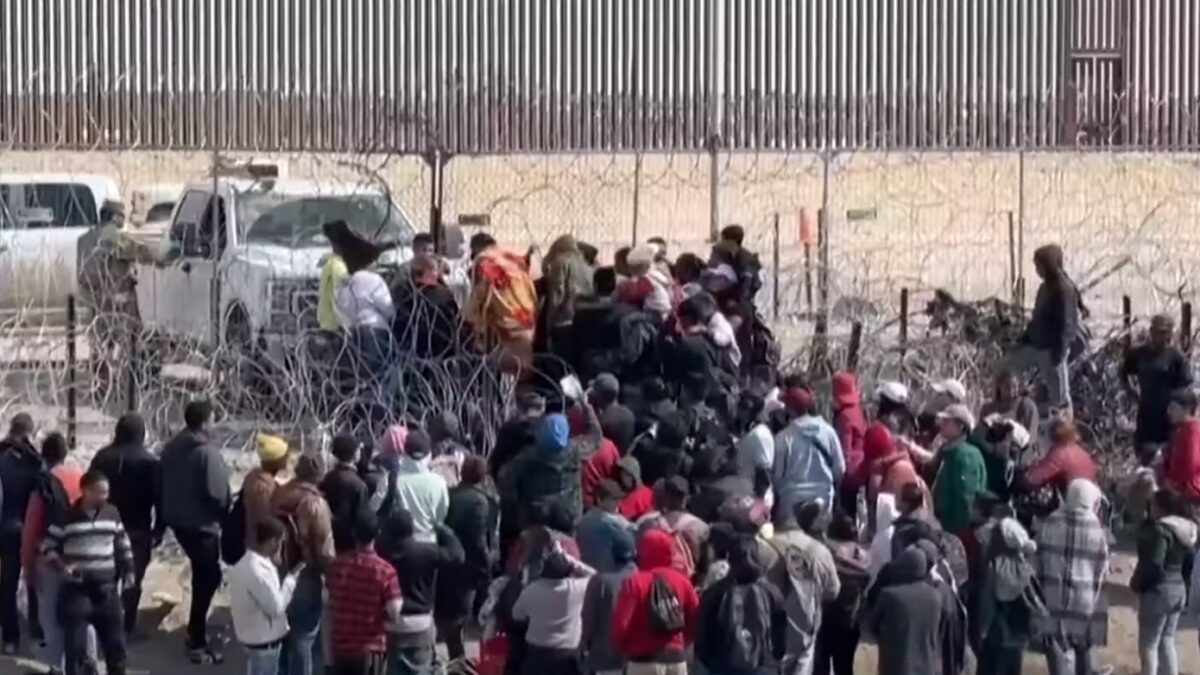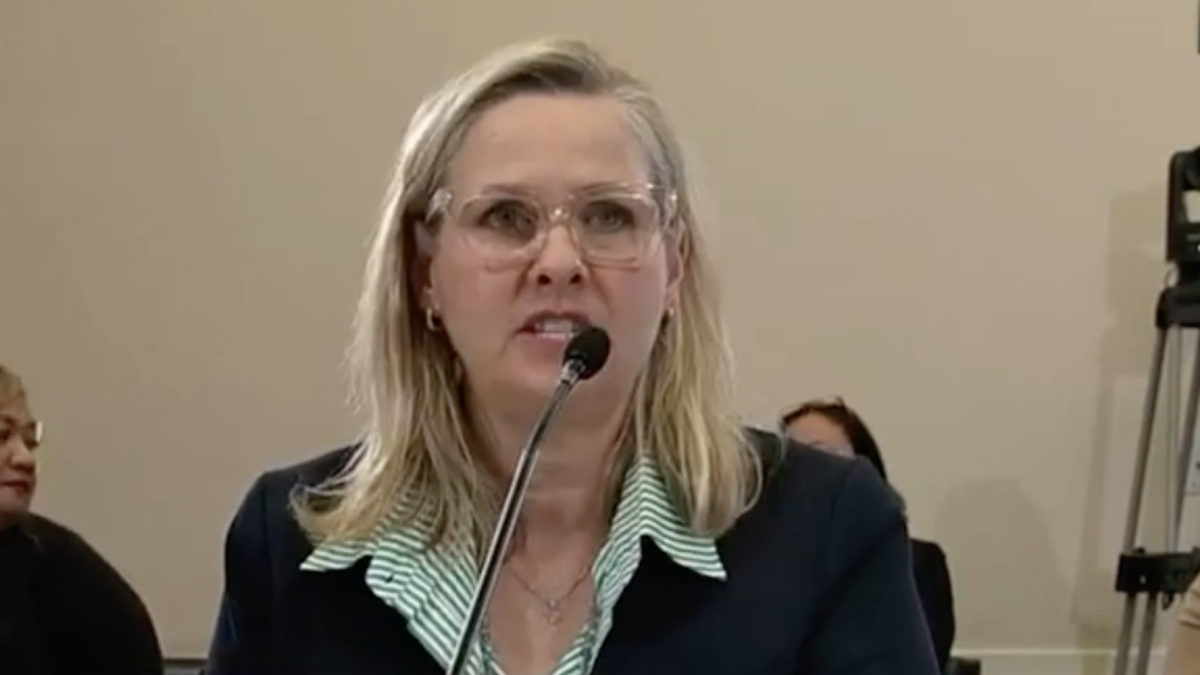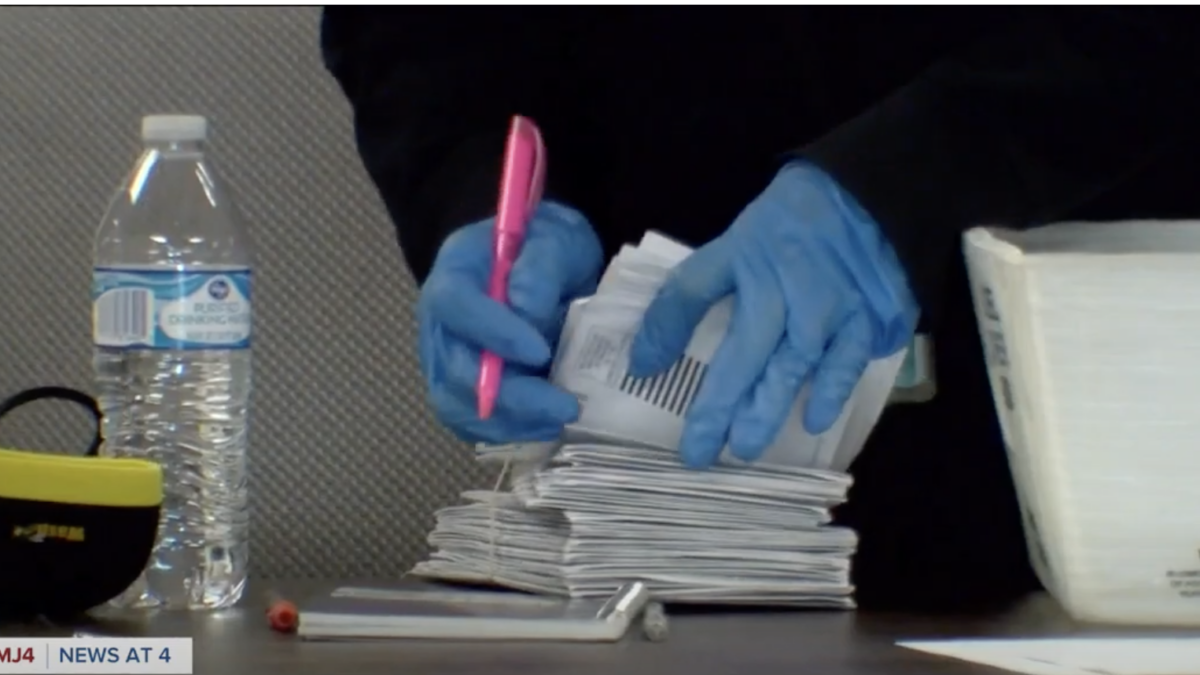A lot of ink has been spilled in recent days about the Senate’s $118 billion border bill, most of it detailing just how awful the proposed legislation is — awful, that is, if your goal is actually to secure the border. The bill creates a new baseline of admitting 1.8 million illegal immigrants annually, doles out work permits and green cards on the whim of federal bureaucrats, and funnels billions of tax dollars to the same NGOs that have for years facilitated mass illegal border crossings. And that’s just for starters.
But not much has been said about Mexico’s role in the new immigration regime this legislation would create. In fact, Mexico is barely mentioned at all in the 370-page bill. That’s odd considering that no border enforcement mechanism that actually keeps illegal immigrants out of the U.S. will work without some level of Mexican involvement.
Consider that the so-called “bipartisan” legislation, crafted behind closed doors by Senate Majority Leader Chuck Schumer and Minority Leader Mitch McConnell, includes a “border emergency authority” to shut down the border if 5,000 illegal immigrants are arrested daily over seven consecutive days or 8,500 are arrested in a single day. Setting aside that this would cement into law nearly 2 million illegal immigrants every year, what would happen to all those illegal immigrants arrested in the U.S. after the border is “shut down” under this emergency authority?
Apparently, they would all be sent back to Mexico. But why would Mexico agree to that? Admitting hundreds of thousands of foreign nationals into northern Mexican border towns after they’ve already crossed into the U.S. would create massive problems for a country already beset by record-breaking violence and crippling levels of corruption.
The answer is that the Senate bill hopes to bribe Mexican President Andrés Manuel López Obrador. Buried in the bill (on page 85) is a $415 million slush fund “to increase foreign country capacity to accept and integrate returned and removed individuals.” The unnamed foreign country here is almost certainly Mexico, which is where the “removed individuals” would be sent once the border is “shut down.” Another $850 million in the bill is set aside for undefined “International Disaster Assistance” to “address humanitarian needs in the Western Hemisphere.” Again, the likely recipient of the bulk of these funds will be Mexico.
For his part, López Obrador, popularly known as AMLO, has been candid about his desire for the United States to pay for Mexico’s cooperation on the border. Last month, following a high-level visit of Biden officials to Mexico City in December, AMLO reportedly demanded $20 billion from the Biden administration to help tackle the “root causes” of illegal immigration, as well as sweeping reforms to U.S.-Cuba policy and 10 million visas for Mexican nationals currently living in the United States.
In this context, it’s hard not to see the hundreds of millions of dollars set aside in the border bill as a down payment on AMLO’s demands. At best, it’s a quid pro quo for cooperation on the border. At worst, it’s a ransom payment to a hostile neighbor with ill intent.
Now, one might argue that Schumer and McConnell and the Biden administration are just doing the practical thing here and securing Mexico’s cooperation. But such a view belies a misunderstanding of the relevant history and Mexico’s malign role in the border crisis.
For many decades now, the default assumption in Washington was that Mexico is our partner, that we can’t solve illegal immigration without Mexico’s help. But that’s only half true. The reality is that Mexico is not a partner, not a friendly neighbor with whom we can cooperate to solve this problem, but an antagonist. Over the last 15 or so years, the merging of Mexico’s most powerful cartels with certain elements of the Mexican state means that much of the border crisis is being directed and facilitated by the cartels in collaboration with Mexico’s National Guard and the National Institute of Migration, the federal agency in charge of migration in Mexico.
On top of that, it’s now a well-established fact that AMLO himself is cooperating with the Sinaloa cartel, the country’s most powerful, and has been for many years. A long and detailed report published by ProPublica last week chronicled Sinaloa’s bankrolling of AMLO’s 2006 presidential campaign, which appears to have been the beginning of a long partnership that has now borne fruit — for both parties. Sinaloa has helped consolidate electoral victories for AMLO’s left-wing Morena party in the last two election cycles, while AMLO has pursued a policy of placating the cartels and disavowing the drug war — “hugs, not bullets,” as he put it on the campaign trail in 2018.
That AMLO’s administration has been compromised by its association with the cartels, or that the cartels have figured out how to monetize illegal immigration, isn’t some conspiracy theory but well-established fact. Given that reality, it stands to reason that if AMLO is going to cooperate with the Biden administration to reduce the flow of illegal immigration into the U.S. at the expense of the cartel networks with which he is politically allied, he’s going to want compensation. After all, the illegal immigrant black market was worth an estimated $13 billion a year as of July 2022, and is likely much more than that now, not counting the $56 billion in remittances to Mexico from the U.S. every year.
Put bluntly, that’s what the $415 million slush fund is really for, to make up for lost revenue that would otherwise go to the cartels, smuggling networks, and corrupt elements of Mexican officialdom. And it’s likely just a first installment.
Given all this, what other ways could we secure Mexico’s cooperation on the border crisis? Recent history suggests that sticks work better than carrots. In 2019, amid a much smaller border crisis, President Trump famously threatened to slap a tariff on all Mexican goods coming over the border unless the Mexican government did more to crack down on the caravans wending their way north through the country. If Trump had followed through, it would have collapsed the Mexican economy in short order, and everyone knew it.
Sure enough, the newly elected AMLO got the message. Arrests at the border soon began to plummet. The caravans were dispersed, and most never made it to the border. By the time Trump left office, illegal border-crossings were at historic lows.
That changed the month after Biden took office, and we have more or less been in crisis since then. Under Biden, almost nothing has been asked of Mexico, even as illegal immigration reached historic levels. Yet Biden hasn’t threatened AMLO’s government with a thing, and of course, the lack of consequences has incentivized more bad behavior from a corrupt Mexican state and the cartels that profit off the crisis.
If Senate Republicans were serious about convincing Mexico to accept expelled or deported illegal immigrants under a new U.S. border policy, they would treat our southern neighbor as the antagonist it actually is and threaten massive tariffs or some other economic penalties. As for the cartels, Republicans need to start making a more forceful case for going to war with them. Otherwise, there’s no way to get either the fentanyl or border crises under control.
The last thing you would do with such a neighbor, under these circumstances, is offer a bribe, validating the corruption right at the heart of the border crisis. Yet that’s exactly what the Senate bill does.









